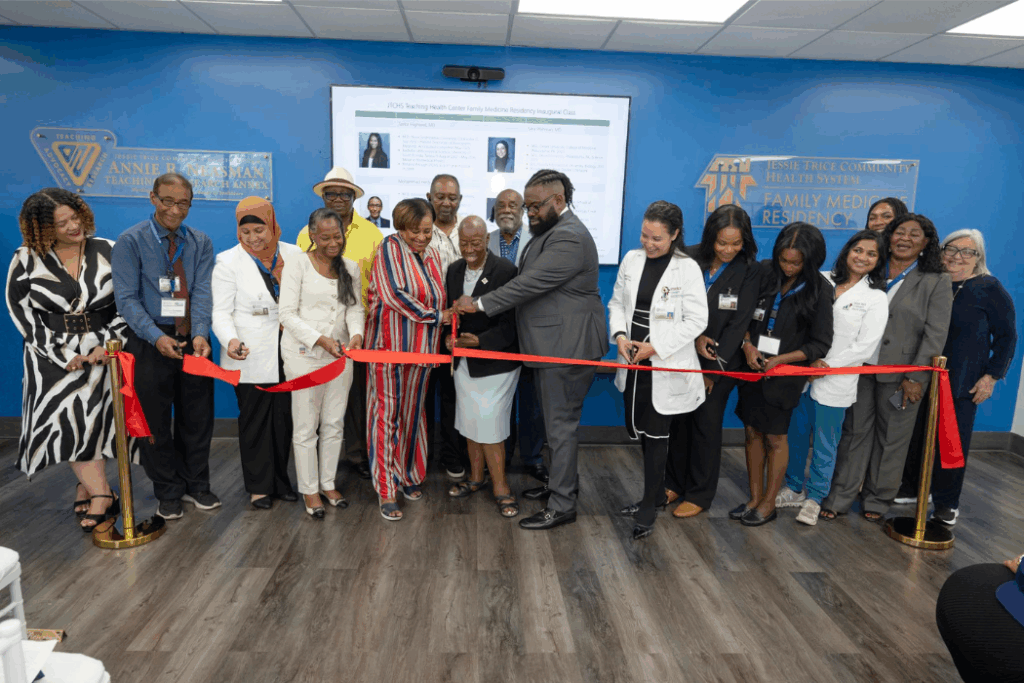
Pennsylvania Aviation Parts Supplier Goes Global
It’s almost the end of a long day as Rachel Carson picks up the phone. It’s an aviation maintenance shop in California looking for main rotor grips for a Bell 47 helicopter. Soon, the parts are on their way –another order filled.
As founder and CEO of Helicopter Tech, Inc., Carson knows aircraft parts as well as anyone in the industry — everything from avionics to main rotor hub assemblies, horizontal stabilizers, or any one of thousands of other parts. Starting her business in King of Prussia, Pennsylvania back in 1995 was “a dream come true,” she says.
“Both my father and uncle are in the industry, so hearing about helicopters while growing up fueled my interest in aviation,” she says. “I also became aware of the difficulties that maintenance shops had in locating certain aircraft parts, so directed my energies at filling that niche.”
Today, her company provides thousands of aircraft parts manufactured by subcontractors and suppliers and delivered through its supply chain management operation. Carson says the firm also manages the manufacture and delivery of the parts “to ensure consistent quality, efficiency, and cost,” a process that starts with the design and ends with final packaging and on-time delivery.
The Export Challenge
Having established her company domestically early on, Carson wanted to make global expansion a top priority by finding new buyers in Europe and Asia. However, she faced stringent foreign government regulations and U.S. export documentation requirements applicable to aircraft parts that can make exporting more challenging for small companies. As such, Carson sought assistance on how to best navigate these and other exporting issues; initial hurdles which had often resulted in delays, costs, and excess paperwork, thus hampering her efforts to be competitive in the international marketplace. That’s when she reached for the phone to call one of the most critical export resources for U.S. businesses.
U.S. Commercial Service Lends a Hand
It was the early 2000’s when Carson dialed up the U.S. Commercial Service (CS) in Philadelphia for export assistance. The office is part of the Commerce Department’s International Trade Administration’s worldwide network of offices in 100+ U.S. cities and more than 75 foreign markets.
“The U.S. Commercial Service offers a fantastic set of programs that have proven to be an immense help for Helicopter Tech,” Carson says. “Our first objective was to identify markets where U.S. export regulations were not as strenuous, and where we could have a competitive advantage.”
Says CS Philadelphia Director Tony Ceballos: “Through our export counseling, we assessed Rachel’s export challenges and pointed her towards the best markets for her products. We, then, tailored a long-term export strategy utilizing market information, webinars, business matchmaking, and trade forums.”
Moving ahead, Ceballos and staff then coordinated with colleagues at the U.S. embassy in South Korea to provide market research and trade counseling on doing business in that country. Carson also opted for customized, pre-screened “Gold Key” business matchmaking meetings, which led to the signing of a new partner in South Korea while fueling sales. The CS has also helped her company navigate expansion to Germany.

Not content, Carson continues to reach new export horizons, recently garnering nearly a half-million dollars in combined sales to Singapore, Thailand, and Malaysia, which was aided by CS market briefings, networking events, and pre-screened business-to-business meetings during her attendance at the Singapore Air Show.
With growing export sales, Carson cites this export assistance as a key to her success in overcoming international trade barriers. Helicopter Tech was able to take advantage of the booming aerospace industry and meet foreign demand for its products by utilizing CS strategic marketing knowledge and cultural expertise. In recognition of its international success, Secretary Wilbur Ross presented Helicopter Tech with the prestigious 2018 President’s “E” Award for Exports for having made significant contributions to the expansion of the export trade of the United States.
Building the Bottom Line through Exports
Since its inception, Helicopter Tech has increased international sales to 40 percent of its overall commercial aviation business, growing from a one-woman business to 11 employees and contractors. Carson says that in the current economic climate her customers are making purchases for more immediate needs, and less for long-term inventory.
“Exporting keeps us diversified and profitable,” Carson says. “For example, during the summer, when the U.S. does less maintenance on their helicopters, we’re able to maintain steady business during the winter aviation maintenance period in Australia, and vice versa.”
Advice and Lessons Learned
Carson says that companies looking to expand their exports need to understand the culture of the target market. Even though cultural distinctions may not seem as relevant in an industry such as aviation, it is still imperative to acclimate to a country’s business culture to make a sale.
“It’s critical to know exactly where you are going and what you are talking about in order to succeed in international business,” she says.
At an aerospace forum in Italy, Carson learned that making a business deal starts by establishing solid personal relationships, whereas in the United States, business can be done more informally through e-mail. Also, be prepared to attend formal dinners which are often initiated by potential business partners abroad to build rapport with potential U.S. suppliers.
Carson adds that being a woman in a largely male-dominated field has actually been an asset. “Once you’ve demonstrated your knowledge of the product and awareness of customer needs, you quickly gain respect,” she says. “Do your homework first, and the sales will follow.”
Action Plan
- Take advantage of U.S. Commercial Service (CS) trade counseling and export promotion services. Go online to export.gov, the federal government’s export assistance portal. On the site, you can view the Exporting Basics video series , Country Commercial Guides, and find your nearest U.S. Commercial Service office.
- Utilize the CS Gold Key and other business matchmaking services. Helicopter Tech connected with pre-screened business partners and prospective clients in South Korea, Southeast Asia, and other markets.
- Study the culture of the target market. Carson understood the importance of understanding a foreign culture when doing business with that country. Her firm utilized CS up-to-date market intelligence and cultural expertise.
- Don’t get discouraged by regulations. The CS was able to provide information to Helicopter Tech, and to help it understand how to comply with export regulations and continue to export successfully. Additionally, the CS actively engages in trade advocacy, to continue leveling the playing field for U.S. companies operating overseas.













